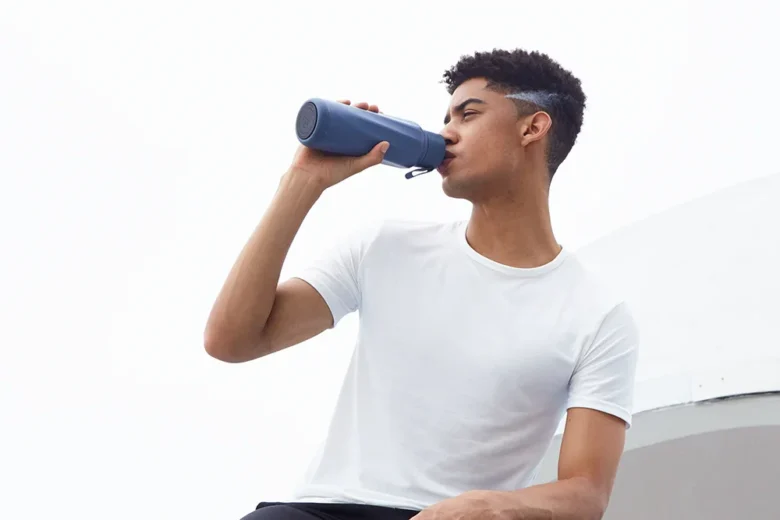Water is what we need to survive. It makes up almost 60% of your body, helps your body do important things, and is generally good for your health. Yet we forget how simple and important it is to our health to drink enough water regularly. Staying hydrated doesn’t just quench your thirst; it’s also important for staying mentally and physically strong, feeling energized, and quenching your thirst. Despite the importance of water, many of us don’t drink enough every day, leaving us vulnerable to a variety of health problems. Living a healthier, more energetic life starts with recognizing the importance of staying hydrated.
Understand Hydration
Staying hydrated essentially means making sure your body has enough water to function properly. When you lose more water than you take in, your body has trouble doing its basic job. This is called dehydration. Water is important for keeping cells healthy, regulating body temperature, and digesting food. Even mild dehydration can slow down these processes, causing fatigue, headaches, and irritability. Serious dehydration, on the other hand, can lead to fatal problems. Understanding the delicate balance of hydration can help us better understand the importance of drinking plenty of water.
The Benefits of Staying Hydrated
Staying hydrated is like putting gasoline in a well-tuned engine; it keeps everything running smoothly. Staying hydrated is important for keeping your body running smoothly because it supports your digestive system and allows for better absorption of nutrients. Staying well hydrated keeps your skin glowing, your joints lubricated, and your immune system strong. In addition to the physical benefits, drinking enough water can improve your mood and give you more energy. As a natural detoxifier, it removes toxins from the body and helps your kidneys function better. Every glass of water you drink is good for your health in the long run.
How Much Water Should You Drink Daily?
A key question people often ask about staying hydrated is, “How much water do I really need?” The “eight glasses a day” rule is a good starting point, but everyone’s water needs are different. Factors like your weight, how active you are, and the weather all play a role. A better approach is to drink half your body weight in water every day. Let’s say you weigh 150 pounds. Aim to drink 75 ounces of water per day. Also, remember that foods that keep you hydrated, like fruits and vegetables, also count toward your daily water intake.
How Do You Know If You’re Dehydrated?
If you’re not drinking enough water, your body will let you know pretty quickly. It’s important to know these signs to stay healthy. Dry mouth, fatigue, and dark urine are early signs of dehydration. You may also notice that your body needs water by having a headache, dizziness, or difficulty concentrating. If you’re dehydrated for a long period of time, it can lead to more serious problems, like kidney stones or urinary tract infections. By watching for these signs, you can take action before dehydration gets worse.
How to Drink Enough Water During the Day
Staying hydrated isn’t something that just happens; you have to work at it. When you wake up in the morning, drink a glass of water to boost your metabolism. Make sure you have a reusable water bottle with you so you can easily drink. If you don’t like plain water, add cucumber, citrus, or mint for a better taste. You can also use an app that tracks your water intake or set an alarm on your phone to help you stay on track. Also, remember to drink plenty of water when the weather is hot or when you’re working out to replace the fluids lost through sweating.
Stay Hydrated and Exercise
Whether you’re working out at the gym or running a marathon, getting enough water is important for optimal physical performance. Water helps keep your body’s temperature stable and your muscles and tissues supple. Dehydration, even mild dehydration, can seriously affect your endurance, strength, and overall coordination. Electrolyte-rich drinks can help athletes maintain their energy and replace the salts lost during exercise. Water, on the other hand, is still the best way for most people to keep their bodies in top condition.
The Role of Hydration in Weight Management
Drinking plenty of water can help you lose weight or maintain a healthy weight. Drinking water before meals can help you feel less hungry, which can help you eat fewer calories. Water also speeds up your metabolism, helping your body burn calories faster. Plus, drinking enough water prevents thirst and hunger from mixing, which can lead to overeating. It’s a powerful, calorie-free tool that can support your weight management goals in a number of ways.
Hydration and Clear Thinking
You need water for more than just your body. Your brain needs it, too. Being even slightly dehydrated can affect your mood, memory, and ability to focus. Research shows that drinking enough water can help your brain function better, allowing you to think more clearly and make better decisions. If you’re feeling tired or having trouble thinking, drink a glass of water and see the difference it makes. The brain is made up of about 75% water, so drinking water is important if you want to stay sharp and work through the day.
FAQs
1. Is it possible to drink too much water?
Yes, drinking too much water can cause hyponatremia, a rare condition in which the amount of sodium in the blood becomes dangerously low. The goal is to balance fluids rather than overloading them.
2. Does coffee or tea count when drinking water?
Yes! Although coffee and tea contain caffeine, they can help you drink more water each day. But make sure to drink plain water alongside these beverages to avoid consuming too much caffeine.
3. Do sports drinks really consume more water than water?
Waters are ideal for light activities. Because sports drinks replenish electrolytes, they are often helpful during strenuous exercise lasting more than an hour.
4. When should I drink water?
Drink water at different times of the day. Good times to drink water are when you first wake up, before meals, during exercise, and after exercise.
5. Do the foods I eat keep me hydrated?
Definitely! Foods like cucumbers, watermelon, oranges, and spinach are excellent sources of water and can help you stay hydrated.




